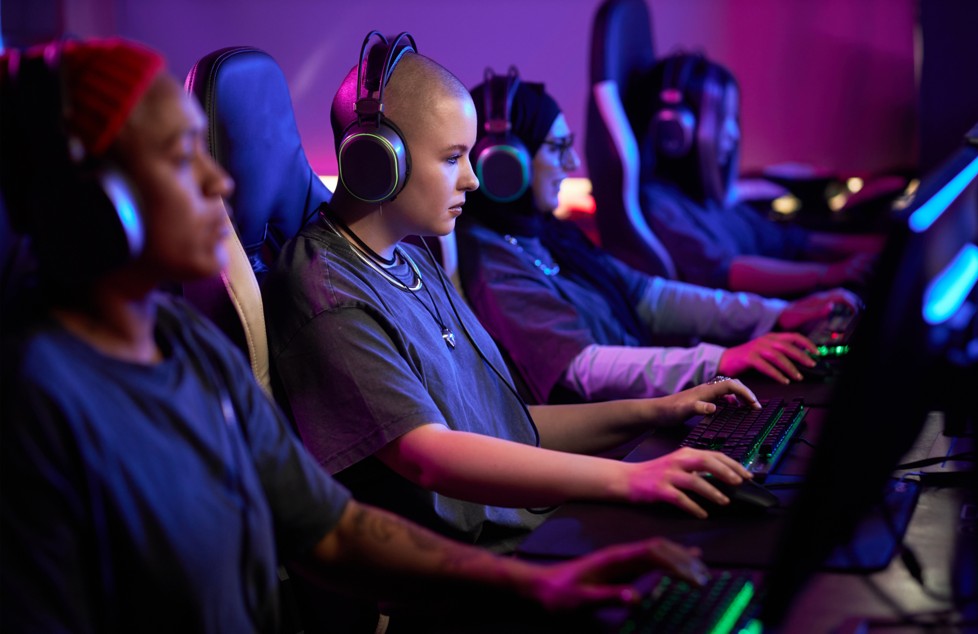Online gaming has become an integral part of modern entertainment, with millions of players worldwide engaging in various genres. However, discussions surrounding its impact on mental health are often clouded by myths and misconceptions. While some argue that gaming leads to addiction and psychological issues, others highlight its potential benefits, including stress relief and cognitive development. This article explores the myths and realities of online gaming’s impact on mental health, shedding light on the latest research and expert opinions.
Myth 1: Online Gaming Leads to Severe Addiction in All Players
Reality:
While gaming addiction is a legitimate concern, not every gamer becomes addicted. The World Health Organization (WHO) recognizes “gaming disorder” as a condition but emphasizes that it affects only a small percentage of gamers. Most players engage in eday หวย as a recreational activity without experiencing harmful consequences. The key to avoiding addiction is moderation, self-regulation, and maintaining a balanced lifestyle.
Myth 2: Online Gaming Causes Increased Aggression and Violence
Reality:
The idea that video games lead to violent behavior has been widely debated. Research, including studies by the American Psychological Association, suggests that there is no conclusive evidence linking gaming to real-world violence. While certain games may contain violent content, they do not directly cause aggressive behavior in mentally stable individuals. Instead, personality traits, social environment, and upbringing play more significant roles in shaping behavior.
Myth 3: Online Gaming Has No Benefits for Mental Health
Reality:
Contrary to popular belief, online gaming can have several mental health benefits. Studies show that gaming can help reduce stress, anxiety, and depression by providing an engaging and enjoyable escape. Additionally, multiplayer games promote social interactions, helping players build friendships and improve their communication skills. Certain games also enhance problem-solving abilities, critical thinking, and cognitive flexibility.
Myth 4: Gamers Are Socially Isolated
Reality:
Many people assume that gamers are introverted and socially isolated. However, the rise of multiplayer and cooperative games has fostered strong online communities. Platforms like Discord, Twitch, and in-game chat features enable players to interact, collaborate, and build meaningful relationships with others. Some gamers even report that online friendships have positively impacted their real-world social skills.
Myth 5: Online Gaming Is Only for Teenagers and Children
Reality:
Gaming is no longer limited to young audiences. The gaming demographic has expanded, with adults and even older individuals actively participating. According to industry reports, the average gamer’s age is around 34, and gaming serves as a recreational activity for people of all ages. Online gaming communities often include individuals from diverse backgrounds, creating inclusive environments for different age groups.
The Role of Gaming in Stress Relief and Emotional Well-being
Engaging in online games can serve as a form of escapism, helping individuals manage stress and negative emotions. Games that involve immersive storytelling or relaxing gameplay mechanics, such as puzzle or simulation games, contribute to emotional well-being. Some therapists even incorporate gaming into treatment plans for patients with anxiety and depression.
Understanding the Risks and Practicing Healthy Gaming Habits
Despite its benefits, excessive สมัครคาสิโน can have negative effects, such as disrupted sleep patterns, eye strain, and neglect of real-life responsibilities. To ensure a healthy gaming experience, players should:
- Set time limits and take regular breaks.
- Maintain a balance between gaming and other activities.
- Stay physically active to counteract prolonged screen time.
- Engage in social interactions beyond the gaming world.
- Seek professional help if gaming negatively impacts daily life.
Conclusion
Online gaming’s impact on mental health is a complex topic that cannot be reduced to simple myths or stereotypes. While excessive gaming can lead to issues such as addiction or sleep disturbances, responsible gaming provides cognitive, emotional, and social benefits. The key lies in understanding the balance between healthy engagement and overindulgence. By fostering a well-informed perspective, we can appreciate the positive aspects of gaming while mitigating potential risks, ensuring a fulfilling and mentally healthy gaming experience.















